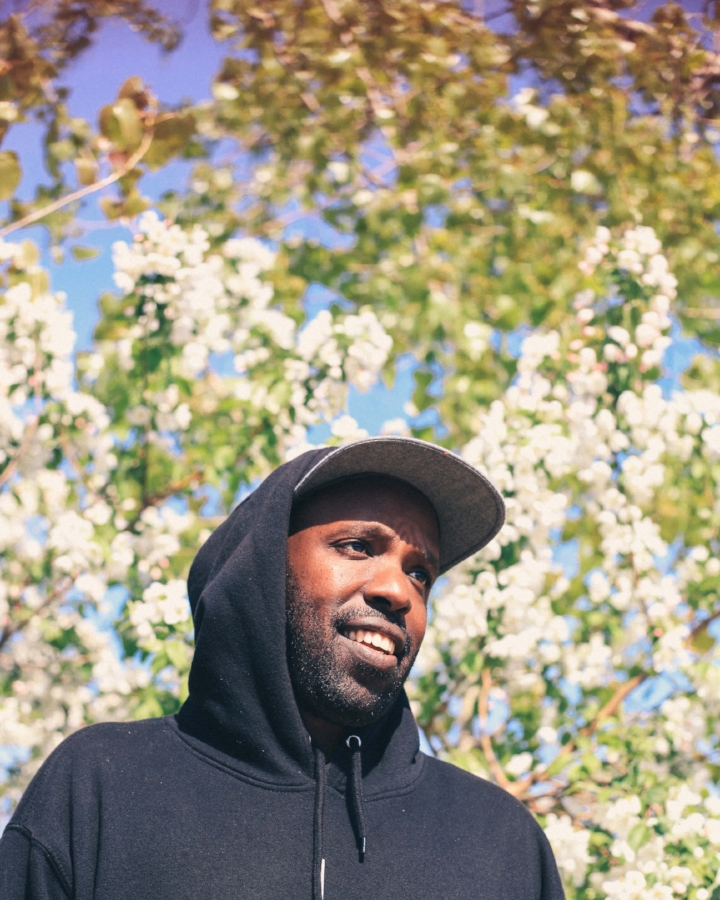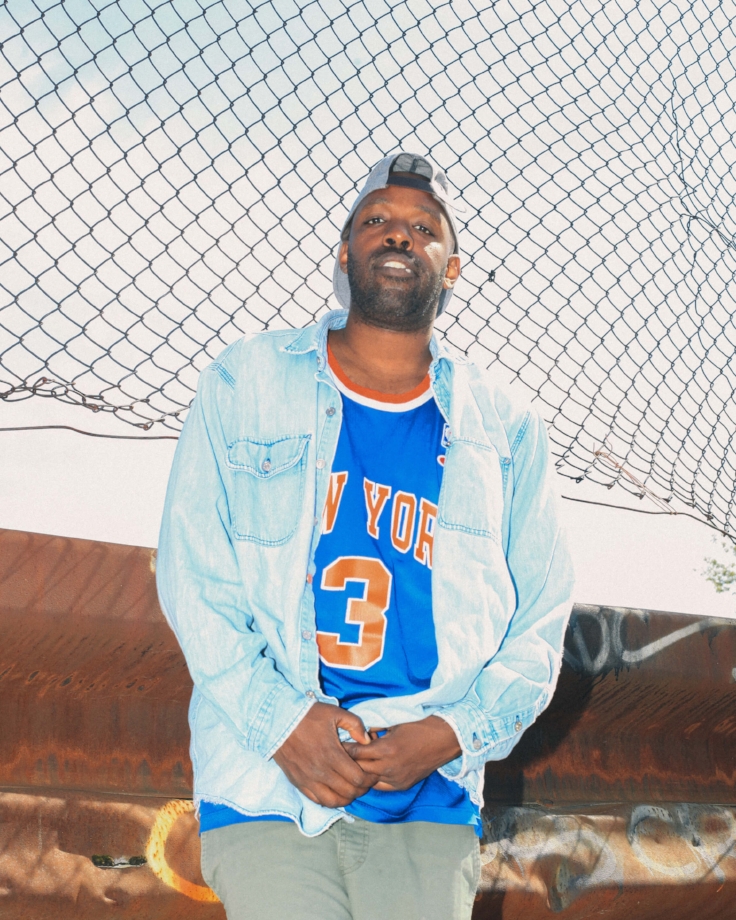The Return of Shad
Long established as one of the most recognizable names in Canadian hip-hop, fans of Shad have been patiently waiting since 2013 for the return of Shad’s blend of thoughtful lyrics with immersive organic production. On A Short Story About A War, the lyrics remain as strong as ever, but be prepared for the most adventurous (and ultimately the strongest) album in Shad’s discography. A Short Story About A War is a departure from most conventional hip-hop records, and tells the story about a dystopian desert planet engulfed in war. With parallels to the political divides of today, Shad crafts an intricate story with multi-layered characters ranging from The Sniper, to The Stone Throwers, to The Fool. As if releasing one of this year’s most elaborate concept albums wasn’t enough, Shad has also kept himself busy hosting Hip-Hop Evolution, the Peabody-winning HBO series which traces hip-hop’s history through interviews with some of the genre’s most illustrious pioneers (now on Netflix). Shad recently embarked on a cross-Canada tour that will see him return to Ottawa on November 22nd. We reached Shad in Toronto:
Apt613: A concept album about a war-torn desert planet seems like a bit of a departure for you. How did this process get started, and when did you know you were going to be making a full concept record?
Shad: When I embarked on the process of making a new album, I was writing a bunch of songs that were really of two different paths. I had the story in mind and was recording songs related to this concept, but I was also writing songs in a completely opposite vein. On the other songs I just really wanted to make some music that made people feel good with everything going on in the world right now. But what ended up happening was the songs that kind of came out of this concept were coming together in a way that felt more clear and more purposeful. I was running on a more inspired clear vision, so I just kind of kept going down that path and this album was born of that process. The story itself was one that just occurred to me maybe five years ago and it ended up staying with me longer than I thought it would.
When you first got the idea, did you know right away this would be a record? The story sounds like it could also easily work as a screenplay.
Exactly, it feels very visual, and so at first I wasn’t really thinking about trying to make it come alive through music. But at the end of the day music is what I know best and where I can make my ideas come through most effectively. Right now I’m thinking about other projects that can make this story come to life, like maybe through different art installations or other ways for it to be expressed in a live setting.
When you started realizing that this was going to be a concept record, did you have any songs that were album-worthy and ready to go but just didn’t fit the narrative of the album?
Yeah, totally. When I first started working on new music I kind of had two folders going. One that was very much “feel good” stuff, and another that was fit to this concept. So there was a lot of stuff that didn’t make this album that I really feel will make up the next project, which will be almost the opposite in tone to this one.
So you don’t think we’ll have to wait another five years for a new Shad record?
No, I don’t think so. I think I’m already halfway there.
Will this be your first time back on the road in a while as well?
Yeah, it will be. I’ve played little one-offs, but not tours, so I’m looking forward to playing more consistently and feeling like a professional again. When you go on the road you kind of develop a rhythm and a strong sense of what you’re doing, and it’s been a while since I’ve felt that. I always feel with one-off shows that you’re never 100% sure if your performance will be there on a given night depending on how you feel.
A fully fleshed-out concept record is a pretty tough task for any artist, there have probably been more failed attempts than successes. In your opinion, what do you think is the best ever hip-hop concept album?
Wow, that’s a really tough question. Well, Kendrick Lamar’s Good Kid, M.A.A.D City has to be up there. I loved the Outkast albums where they would have a full theme running through them, like ATLiens with just the subtle other-worldly thing it has going on, or even Aquemini. I’m not sure if you would call those concept albums, but they do have this imaginative element to them and thread going through them. But Good Kid, M.A.A.D City is definitely way up there.
Switching over to your TV show, Hip-Hop Evolution breaks hip-hop down into different periods and themes. Imagine we’re speaking 20-years in the future and you’re hosting Hip-Hop Evolution: Season 22. How would you look back on 2018 and how would this era of hip-hop be defined?
Oh, that’s a really great question. I guess the next couple of years will prove me right or wrong, but I think 2018 is the year where rap breaks into sub-genres. I think rap’s gotten to the point where rock has reached, where you don’t really talk about “rock music”, you know, you talk about “classic rock”, or “indie rock”, or “punk rock”, or “prog rock”. They’re very different and you evaluate them all based upon their own merits. I think hip hop is on the verge of that. Right now you have SoundCloud rap and different styles that teenagers and very young people are into, and stars are now coming out of that genre. Then you have the deeper sounds of people like Black Thought, Royce, and Phonte who are making undeniably great music.
So I think that the breakdown of genres could be a thing in the show. I mean, Drake’s run could be a thing in the series, and the kind of ways that memes interact with music. 2018 would be an interesting time to look back on. It was all a lot more clear back in the 80’s and 90’s because regionality was important in how it described music, but now that doesn’t really come through nearly as much as it used to. I think it would be super interesting to try and make sense of how the music has evolved in a time where regionality isn’t really a thing anymore.
Who do you think would be one artist from today who you’d have to interview to get a grasp of the era?
I like the people who have approached their careers differently, like Chance the Rapper would be one guy because of the way his whole career has not involved a label, which is kind of new. I think Drake’s run is pretty historic. He’s had so many hits for over a decade now, it’s pretty much unprecedented. And then there are the interesting people like Lil B, who kind of jump in for a little bit but lead a whole new thing. Like Lil B has released an insane volume of music and integrated it with internet platforms in a way that most artists weren’t able to grasp.
A lot of the old-guard of hip-hop is present in the series, and one thing I keep thinking of is why there isn’t the same reverence for the elders of hip-hop as is present in other genres. If you meet a pop singer today, they can talk to you about Michael Jackson or Prince. If you meet a young guy in a rock band, they’ll know Jimmy Page and the notes to the “Stairway to Heaven” solo. But today’s generation of rappers often aren’t able to discuss the careers of Public Enemy or De La Soul, for example.
That has always been interesting to me. I think one part of it is the competitive nature of rap versus other genres. There’s a built-in competitive element to rap coming from battle culture and stuff like that, so I think that creates a reluctance to embrace whoever was on top before you. You’re fighting for the last guy’s crown. So as soon as someone’s been removed from their position at the top, you’re not as quick to tip your hat to them. The other part of it might be the way that sounds have changed. What Chuck D did with Public Enemy was so amazing, but if you were born in the year 2000, you might just not be able to feel it sonically.
I actually have a theory that basically anything from the time of The Low End Theory and The Chronic to today can still feel pretty good. But before that, because of the technology or where the styles were at, it’s just difficult to connect to if you’re not from that era. Or it might also be a problem with the culture and the fact that we just don’t appreciate our heroes as much as we should.
You have a show coming up in Ottawa on November 22nd at The 27 Club. It’s been a little while since your last tour, but does anything stick out in your mind about playing shows in Ottawa?
Well I would say that Ottawa is Canada’s great underrated hip-hop city. You can see that from a lot of great DJs that have come out of Ottawa, and Ottawa has a great history with the battle-rap scene. Shout out to Bender, rest in peace. I think that Ottawa has a savvy smart hip-hop crowd, and kind of an underrated hip-hop city. I think Ottawa has more talent in the genre than a lot of people recognize, so it’s a fun city to play in for sure.


